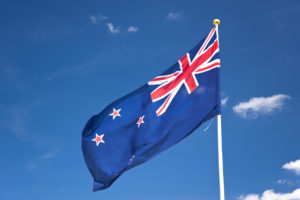 As with most federal elections within the last decade, the 2016 election was extremely close. Within the past few elections there has also been a rise in independents and minor parties gaining momentum and in turn, gaining seats in both the Senate and the House of Representatives. Since both major parties agree with various forms of mandatory offshore detention, it is time to start looking at the minor parties and independents and the alternatives they can offer.
As with most federal elections within the last decade, the 2016 election was extremely close. Within the past few elections there has also been a rise in independents and minor parties gaining momentum and in turn, gaining seats in both the Senate and the House of Representatives. Since both major parties agree with various forms of mandatory offshore detention, it is time to start looking at the minor parties and independents and the alternatives they can offer.
There are 1,695 people currently in detention and the outcome of the election could not be more important for them, especially considering many have been in detention for 730 days or longer.
Since the Coalition just scraped by with a majority Government in the Lower House, if even one Coalition member does not vote with the government, their entire position may no longer be tenable (assuming Labor do not back a specific policy or piece of legislation). It is therefore important to look at who the other seats are held by and what their positions are. One seat is held by the Greens member Adam Bandt. The Greens believe that Australia should abide by its obligations under the Refugee Convention. Another member from a minor party with a seat in the lower house is Rebekha Sharkie from the Nick Xenaphon Team. Whilst Ms Sharkie herself has not publicly made any comments about refugee policy, the Nick Xenaphon Team stand for an increase in the refugee intake to make up for offshore processing. While not standing up completely for an end to offshore processing, the party stands for more transparency, such as organisations being able to access detention centres and whistle-blowers being protected after speaking out. Governments should also be responsible for the health and safety for those seeking refuge whilst they are in detention centres.
Independent Andrew Wilkie previously put forward a bill to end mandatory detention, offshore protection, and temporary protection visas. This bill was seconded by another independent, Cathy McGowan.
The other member is Bob Katter, who created his own Katter’s Australia Party. Katter’s response to asylum seekers is the most negative of the members from non-major parties. Whilst he believes refugees should be screened and processed in a timely manner, he also thinks they should only be given temporary protection visas. Furthermore, he thinks more Australian boats should be deployed to prevent boats of refugees from reaching Australia, with severe punishments for people smugglers.
The independents and minor parties are gaining more seats with every election and they are starting to yield large amounts of power. The question now is what issues the independents are going to bring to the table for negotiations. Once draft bills get through the lower house, they will then be subject to further negotiations within the Senate. We need to make sure that a positive refugee and asylum seeker policy is at the forefront of independents’ political agendas.
Megan Sturges, BA/BCom (Macquarie University)




